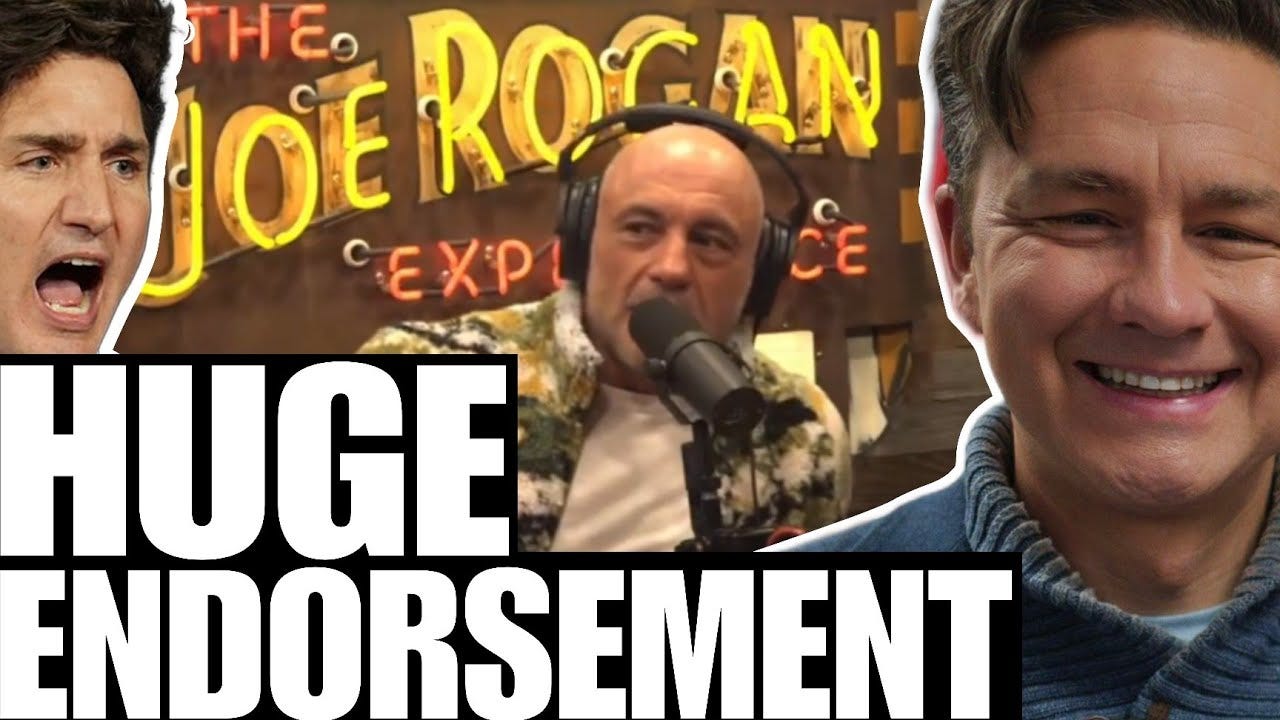Pierre Poilievre Turned Down Joe Rogan and a Chance to Control the Narrative
Joe Rogan just confirmed what many suspected: Pierre Poilievre was invited onto the biggest podcast in the world—and declined. Rogan says Poilievre’s advisors told him it would be “too problematic,” so instead of seizing the moment, he backed out.
Some will argue he was right to avoid shows like Patrick Bet-David’s. Fair enough. While Bet-David has a large audience, it's overwhelmingly conservative and rarely breaks into the mainstream. The conversations don’t often transcend ideological borders or dominate global headlines. But Rogan is different. Rogan is where cultural moments are made. His show reaches everyone—blue collar, white collar, apolitical, curious, critical, left, right, and everything in between. You don’t turn that down in a national campaign unless you’re playing scared.
And that’s the real problem.
Poilievre’s campaign wasn’t run to win. It was run to not lose. Those sound similar, but they couldn’t be more different. Anyone who understands sports psychology knows this. Consider the 1993 Houston Oilers. Up 35–3 in the third quarter, they coasted. Switched to “prevent defense.” Lost their edge. The Buffalo Bills stormed back for one of the greatest comebacks in NFL history, winning 41–38. But here’s the kicker: In a mere two quarters, defensive coordinator Jim Eddy went from being called “the man first in line to be a head coach next year” to a man without a job in the NFL—or even college football—the following year.
Sound familiar?
Poilievre entered the race as the clear front-runner—poised to become Canada’s next Prime Minister and finally bring an end to the Trudeau era. But on election night, he didn’t just fall short—he lost his own seat. Was there interference in his riding? Almost certainly. But dirty tricks are part of the battlefield, and they have to be anticipated and countered. The Conservatives stopped playing to win and started protecting a lead that no longer existed.
Many supporters will blame the Liberal propaganda machine, which is undoubtedly powerful. But that machine was always part of the terrain. You don’t win by hoping the terrain gets easier—you win by outmaneuvering it. And in a media ecosystem where legacy outlets are compromised, a platform like Rogan’s is a game changer. The Conservatives rolled out a 1990s campaign strategy in a 2025 information war.
Is Poilievre still the best shot the party has? Probably. This isn’t a call to replace him. It’s a call to learn the right lesson. Narrative is everything. And next time, when the biggest megaphone in the world is offered… don’t say no. Grab it—and own the conversation.




